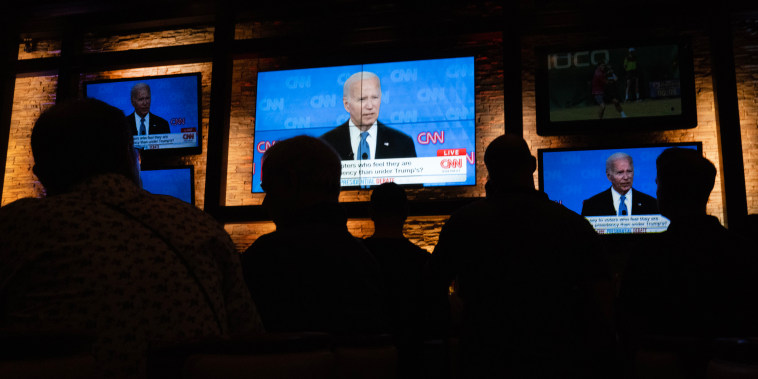
Presidential Debate Sees Drop, Engages 51.3 Million Eyes – A Dip from Recent Showdowns
In a world defined by screens, it has become increasingly evident that televised events such as the presidential debates play a pivotal role in shaping the political landscape of a country. Not only do these events provide a platform for the candidates to present their ideologies and policies to the public, but they also serve as a reflection of the public’s interest in the election. One such controversial point of measurement is the television rating of the debates, which recently took a nosedive as per the reported viewership. The recently held presidential debate only managed to draw the attention of 51.3 million viewers, which surprisingly, marks a steep fall compared to recent similar events.
The fall in viewership of the presidential debate sends ripples across various sectors. It invites political pundits, scholars, and researchers alike, to engage in a lively discourse about the factors contributing to this trend. Various factors are speculated to contribute to this decline, including the changing dynamics of viewership and consumer preference, a growing disenchantment among our society with political discourse, and increased availability and dominance of digital platforms.
The observed shift in consumer preference could well be a contributing factor. It is well documented that contemporary audiences are increasingly favoring personalized, on-demand content over traditional TV broadcasts. As streaming services like Netflix, Hulu, and Amazon Prime Video gain popularity, traditional television viewership is witnessing a significant decline. This shift might have permeated the domain of presidential debates, warranting a rethinking of how such events are presented to the public.
Another possible explanation could be a growing sense of disenchantment among sections of society towards political discourse. This could be due to a variety of reasons including increased polarization, untimely political mud-slinging, or feelings of disenfranchisement among certain demographics. If this holds true, then the reduced viewership could be indicative of a larger societal issue that extends beyond mere television ratings.
Amid these variables, another critical factor that cannot be ignored is the growing dominance of digital platforms for gaining news and updates. The increasing ubiquity of smartphones has revolutionized the way people consume news. Today, more and more people are switching to platforms like Twitter, Facebook, and YouTube for their daily dose of news, updates, and live events. This shift in preference from television to digital platforms might have directly impacted the viewership of the debate.
The combined effect of these factors seems to have led to the observed decline in the viewership of the presidential debates. Although a part of this decline could be attributed to the
